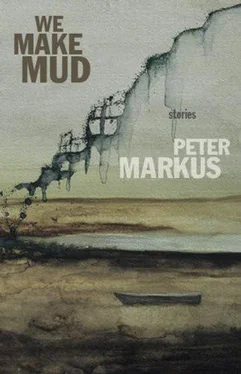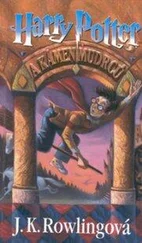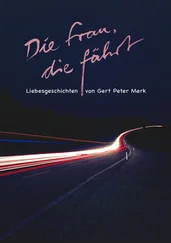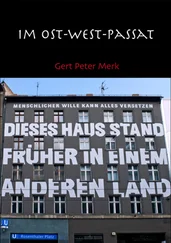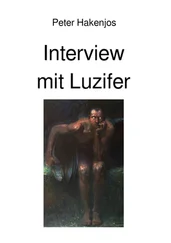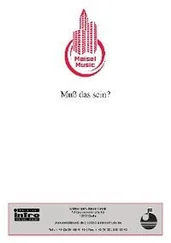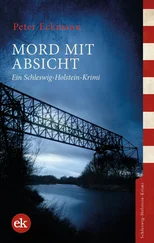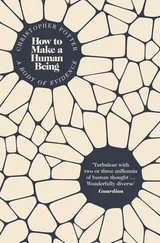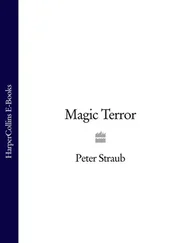Peter Markus - We Make Mud
Здесь есть возможность читать онлайн «Peter Markus - We Make Mud» весь текст электронной книги совершенно бесплатно (целиком полную версию без сокращений). В некоторых случаях можно слушать аудио, скачать через торрент в формате fb2 и присутствует краткое содержание. Год выпуска: 2011, Издательство: Dzanc Books, Жанр: Современная проза, на английском языке. Описание произведения, (предисловие) а так же отзывы посетителей доступны на портале библиотеки ЛибКат.
- Название:We Make Mud
- Автор:
- Издательство:Dzanc Books
- Жанр:
- Год:2011
- ISBN:нет данных
- Рейтинг книги:5 / 5. Голосов: 1
-
Избранное:Добавить в избранное
- Отзывы:
-
Ваша оценка:
- 100
- 1
- 2
- 3
- 4
- 5
We Make Mud: краткое содержание, описание и аннотация
Предлагаем к чтению аннотацию, описание, краткое содержание или предисловие (зависит от того, что написал сам автор книги «We Make Mud»). Если вы не нашли необходимую информацию о книге — напишите в комментариях, мы постараемся отыскать её.
We Make Mud — читать онлайн бесплатно полную книгу (весь текст) целиком
Ниже представлен текст книги, разбитый по страницам. Система сохранения места последней прочитанной страницы, позволяет с удобством читать онлайн бесплатно книгу «We Make Mud», без необходимости каждый раз заново искать на чём Вы остановились. Поставьте закладку, и сможете в любой момент перейти на страницу, на которой закончили чтение.
Интервал:
Закладка:
The Hole at the Bottom of the River
There was a part of the river, a piece of the river, a hole in the river, there was a hole down there that reached down so deep that no body, no fishing man or fishing woman, had ever touched its bottom: no anchor, no barbed fishing hook, no cast-iron sinker, which is to say that nothing that had gone down searching into the river in search of that bottomless place had ever found what it had gone down there looking for. It’s true that this was a part of the river that even us brothers, us muddy river boys, did not with our muddy eyes ever get a chance to see. We had imagined that place: we had imagined it to be deep and dark and muddy, just the kind of a place where us brothers could feel at home at. We wanted to get down to it. We wanted to touch this place with our boy hands. We just knew it in our boy heads that there had to be some way for us brothers to get down to it: it was just that no body, no fishering man or fishering woman, no fish-fishing boy or girl had figured out how to do it. Until now. Until it was going to be us brothers who were the ones to figure how out: figure out how to get down to it. So what us brothers did was this: we rounded up all the rope we could get our hands around — ropes that our mother used to use to hang our no longer muddy clothes up on, ropes used by tugboat and fishing boat men to anchor down their boats. We even stole a roll of coiled-up steel wire that was used to carry our town’s power from house to house. And we knotted them all up together to make for us brothers one big long rope: a rope so long that if one of us brothers were to hold onto one end of it and the other one of us were to take the other end of it and walk off with it into another direction, the brother who was doing the walking might as well never picture himself ever coming to a rest. Or see it like this: if the world was flat, an open hand held out to the sky — and let me tell you, I’m not so sure that it’s not, that is, that it isn’t flat — that walking with the rope brother would walk right off the edge of that held-out hand before he would feel the tug of no more rope left to walk with. Get the picture? So with this rope in hand, us brothers, we walked off down to the river’s muddy shore, down to where we unstuck from the mud where it was sitting a flat-bottom fishing boat, its metal flaking with rust, and us brothers, we straddled ourselves aboard and shoved off with it out into the river. It was us brothers with Girl saddled in between us, there in the boat’s middle, so that the boat, with the all of us sitting inside it, it would not tip with us sitting us like this. So like this, picture this, we oared our way out to where we knew this was where the river’s bottom was a bottomy hole down at the river’s bottom. When we dropped our anchor over the side of the boat and when it did not bite into any bottom, us brothers, we knew that this was where we wanted to be. Here, then, us brothers, we made us a loop in the rope and we looped it over the top of Girl: we knotted it tight, but not too tight, up around Girl’s belly. Girl’s belly button, let me tell you this, it is a hole with its own story to tell, but tell it, I won’t, not right now. And so with a tug, a hug, and a kiss from each of us brothers — goodbye, Girl, good luck, we’ll see you when you get back up — we watched Girl jump into the river. Into the river we watched Girl sink. Like this, Girl disappeared from us brothers. But us brothers, we held onto Girl tight, we held onto our lives, we held on tight to the tied-together line that was singing in our hands. This line, it sang through our boy fingers. This rope, it ran, and then it kept on running, it kept on going: a rope made out of song, a rope made out of water, rope made out of mud and sand. Us brothers, we did not know what the sounds being sung by this rope meant for us brothers, or what they meant for Girl. But still, we held on to that singing song singing as the rope ran through our holding on hands. Back at the river’s edge, the wake that Girl made when she dove headfirst into the river, it rocked a handful of the houses built right on the river right off of their stone block housings. Us brothers, we watched these on-the-river houses float on down, down the river, and were then gone down the river, they went a-bobbing away out toward the lake. We did not raise our hands to wave goodbye to our in-bed, in-our-house mother. Our hands were too filled with song. It burned our boy hands, our ears were on fire. It’d be years before this singing, for us brothers, stopped. Us brothers, we kept on holding on to that song. We held on and did not get any older. When this singing finally did stop — how many years or centuries later was it? — we waited for Girl to give us brothers both a tug, to say to us brothers that she had gotten down to the river’s bottom, down to that dark and rivery hole: tug twice to tell us brothers to pull Girl back up from the river’s bottom back up. After ten years, we got tug number one. After ten years more, or maybe it was ten-hundred years later, two other tugs put us brothers to the task of pulling Girl back up, back up to this other world where, us brothers, we were here patiently waiting. Hand after hand, hand over hand, us brothers, we pulled Girl up. It took us brothers ten years more to get Girl back up to us brothers. Girl, she was that far down inside the river’s hole. When we did get Girl back, when we asked her, so what was down there at the river’s bottom, down where no body had ever gone down there to see, Girl told us that she saw, down there, a man who looked a lot like us brothers sometimes looked, only this man, Girl told us, he was bigger and he was older than us, with whiskers on his man face where us brothers only had just fuzz. He said, she said, that this man was a man who called himself God. And what did Girl and this man who called himself God do for all of those down-in-the-river years? He wanted, he tried, to kiss me, Girl told us. And what did Girl do to God wanting from Girl a kiss? Us brothers, we held our breath. We waited to hear what Girl was going to say. It was a long few seconds. The sky above the river, the sky above the river where the steel mill was shipwrecked in the mud, it was dark and quiet. Somewhere, I was sure, the sun was shining. I did what I had to do, was what Girl said. And what was that? Tell us, us brothers said. What did you do? I did, Girl said, what I’d do to any boy or man or brother who tried to kiss me without asking. And what did Girl do? Is this what you, too, are wondering with us now? Well, let us tell you. What Girl said, what Girl did was, are you listening to this? Are you ready for this? Are your ears ready to hear? Girl bit off God’s whole head.
Our Mother is a Fish
One night, us brothers, we go to get our mother by the elbows up, up out of her sleeping bed, and we walk her back into our back of the house room, and here we lay her body down into the bed that, us brothers, this is where we do our sleeping in. Go to sleep, we say, to this mother of ours. Rest up. But when we lay our mother’s body down into this bed that is our brothers’, this bed, it is not a big enough bed for our mother’s body to fit all the way down in it. Our mother’s legs, when we lay her head down like this in this not-big-enough bed, her mother legs stick out from this bed’s bottom, what our mother always calls the bed’s foot. And when, us brothers, we push down hard with our boy hands to get our mother’s legs to go back up into us brothers’ bed, the head that is our mother’s, it sticks up and out from the head that is the bed’s top. Us brothers, we go back and forth like this, pushing the head that is our mother’s back into where the bed and the pillow is, then it’s us pushing our mother’s legs and feet back up so that they don’t hang down off of where the foot of this bed is: head, legs, push, head, legs, push: get the picture? We walk around and around this bed that is us brothers’ and we look all around this room to see if there is some way for us to get our mother’s whole body, her head and her legs and feet, to get all of this to fit into this bed that is us brothers’ bed for us to share. Us brothers, we don’t know what we are going to do, or how we are going to get our mother — her head, her legs, her feet — into our bed, until we look outside our bedroom’s window and there we see our fish. Outside our bedroom’s window, out back in the back of our house’s backyard, us brothers, there is a back-of-the-yard telephone pole studded with the chopped off heads of fish. These fish, these fishes’ fish heads, hammered and nailed into this pole’s creosoted wood, they are looking back out at us brothers, open-eyed, open-mouthed, and it’s like they’re singing to us brothers. When, us brothers, we see these fishes, these fish heads, singing out to us brothers like this, us brothers, we know that there is only one thing that us brothers can do. Brother, I say to Brother, and I nod at him with my head. You can go first. Brother, I say, give me your hand, I say. Hold your hand out against this room’s dark. Brother, being the brother that he is, Brother does what he is told. Good, Brother, I say. We are brothers, us brothers are. We are each other’s voices inside our own heads. Here, I take hold of Brother’s hand like this, and then I hand to him, into Brother’s reached out hand, the knife that, us brothers, we use this knife to gut out the guts and to cut off the heads off of the fish that we fish out of this dirty river that runs its way through this dirty river town. Mother, Brother says, and here, us brothers, we look at each other with our look. There is this look that us brothers, we sometimes like to look at each other with this look. It’s the kind of a look that actually hurts the eyes of the brother who is doing the looking. Imagine that look. This is gonna hurt you, Brother says to our mother, more than it is going to hurt us, Brother says. And just like this, us brothers, with one brother’s hand teaching the other, we take hold of our mother like this, and like this, and like this. Like this, we cut off our mother’s head.
Читать дальшеИнтервал:
Закладка:
Похожие книги на «We Make Mud»
Представляем Вашему вниманию похожие книги на «We Make Mud» списком для выбора. Мы отобрали схожую по названию и смыслу литературу в надежде предоставить читателям больше вариантов отыскать новые, интересные, ещё непрочитанные произведения.
Обсуждение, отзывы о книге «We Make Mud» и просто собственные мнения читателей. Оставьте ваши комментарии, напишите, что Вы думаете о произведении, его смысле или главных героях. Укажите что конкретно понравилось, а что нет, и почему Вы так считаете.
